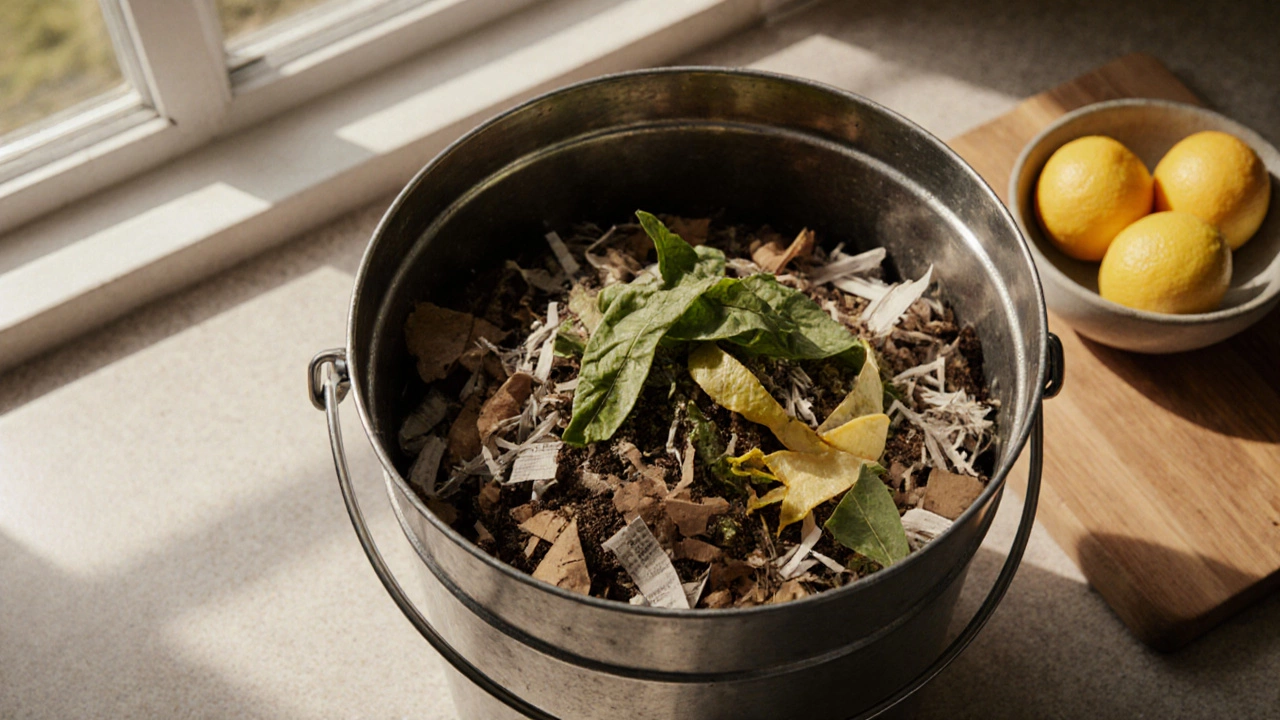Learn the four key ingredients-carbon-rich browns, nitrogen-rich greens, oxygen, and moisture-needed for fast, odor‑free composting and a nutrient‑rich garden amendment.
Composting Basics: Simple Ways to Turn Waste into Garden Gold
When you think of composting basics, the natural process of breaking down organic waste into nutrient-rich soil. Also known as home composting, it’s not some fancy science—it’s just letting nature do its job while you save money and reduce trash. You don’t need a big yard or special equipment. Even in a small apartment in Delhi or a balcony in Bangalore, you can turn coffee grounds, vegetable peels, and dry leaves into black gold for your plants.
Most people skip composting because they think it smells bad or takes too much work. But the truth? A well-managed pile barely smells at all. The key is balance—mix wet stuff like fruit scraps with dry stuff like dried leaves or shredded paper. That’s called the C/N ratio, the carbon-to-nitrogen balance that controls how fast compost breaks down. Too much wet stuff? It turns slimy. Too much dry stuff? It sits there. Get it right, and you’ll have rich compost in 6 to 12 weeks. You can even speed it up with vermicomposting, using worms to eat and digest food waste into ultra-fine fertilizer. Red wigglers love kitchen scraps and don’t need much space. A plastic bin under your sink works fine.
And if you’re short on time, a compost tumbler, a rotating bin that aerates waste without turning by hand makes the whole process easier. Just add scraps, spin it every few days, and wait. No more digging through piles or worrying about pests. Plus, composting reduces what you send to landfills—something every Indian household can do, whether you live in a village or a high-rise.
What you end up with isn’t just dirt. It’s alive—with microbes, fungi, and nutrients that help your plants grow stronger, resist pests, and hold water better. That’s why gardeners who use compost rarely need chemical fertilizers. Your tomatoes, brinjal, or basil will thank you. And the best part? You’re not just making soil—you’re closing the loop. Food waste becomes plant food, again and again.
Below, you’ll find real guides from Indian gardeners who’ve cracked the code on homemade compost. Whether you’re starting with a bucket in your kitchen or building a three-bin system in your backyard, there’s something here for you. No fluff. No jargon. Just what works.
